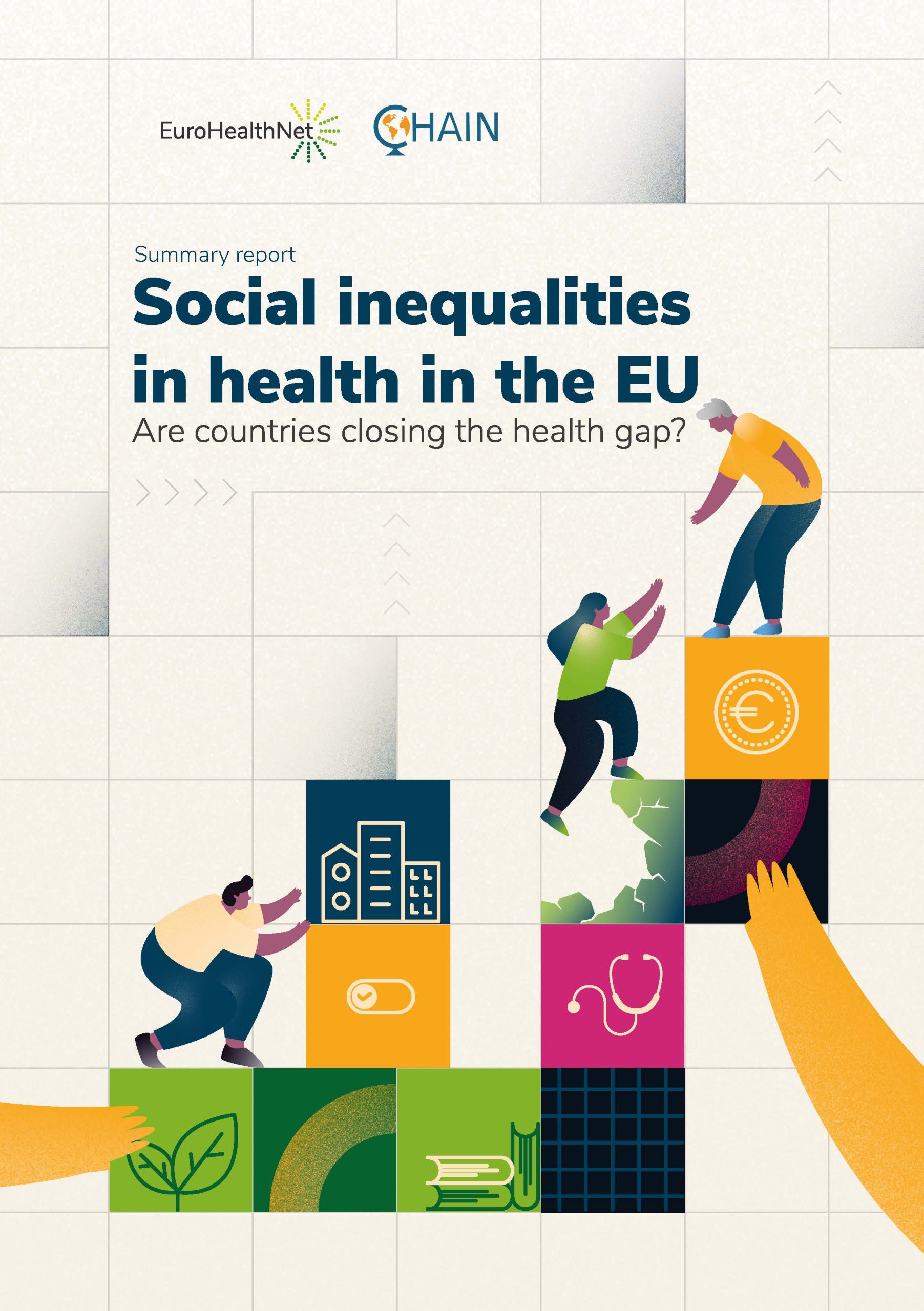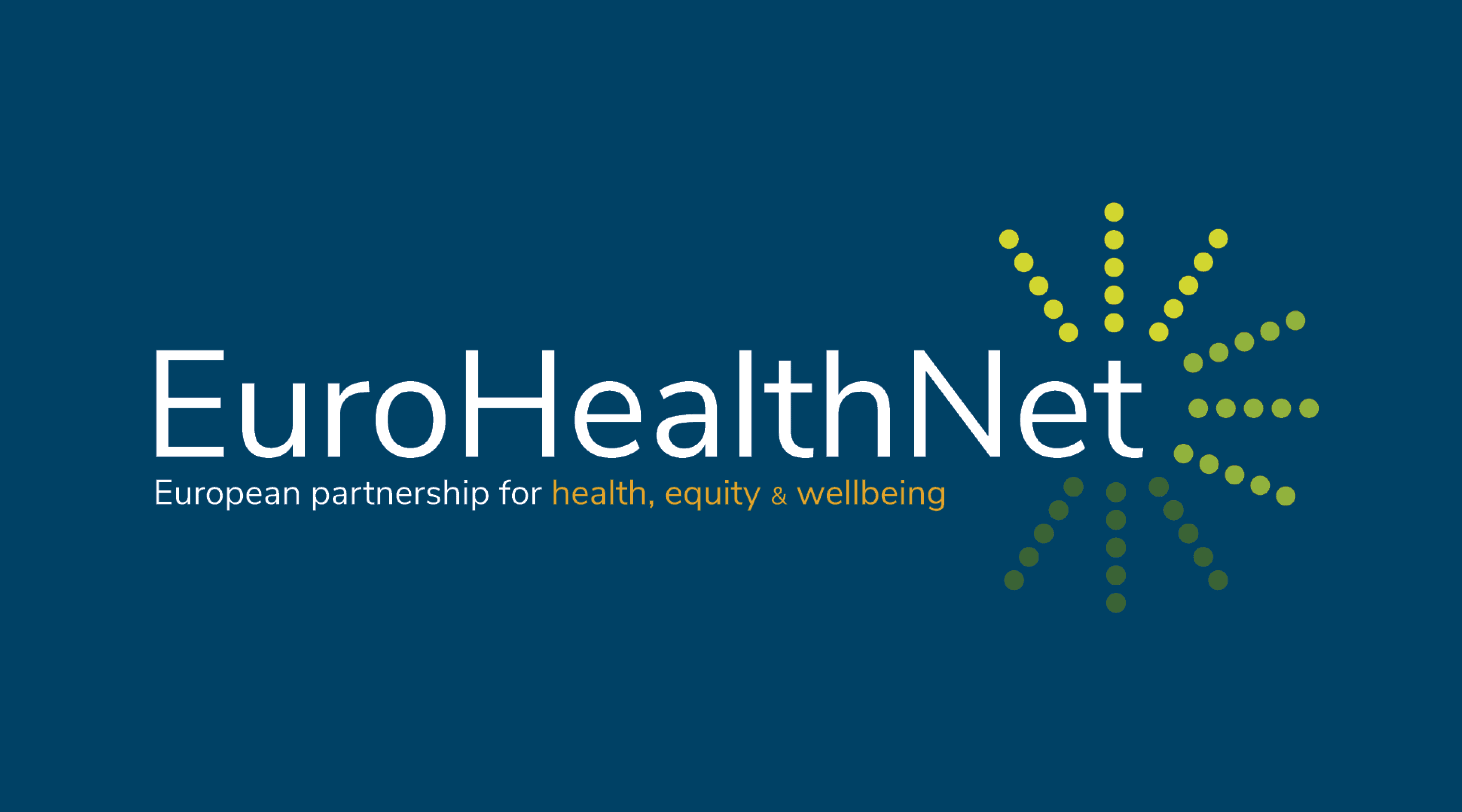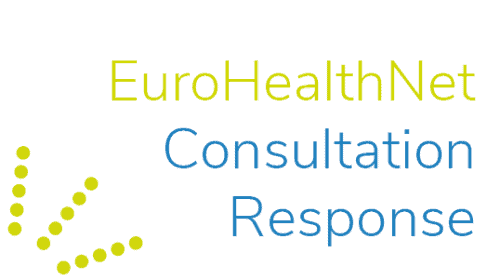“No progress on social inequalities in health over last decade”, says new data
EuroHealthNet-CHAIN report maps 2014-2024 trends in health, mental health and inequalities in Europe, spurring action on root causes.
Europeans are living longer than ever, but these gains are not shared equally. Social inequalities in health and mental health persist across Europe, with people with lower education or occupation reporting poorer health. This undermines Europe’s prosperity and threatens its competitiveness and security, as outlined in the EU political guidelines. This is the main conclusion of the new EuroHealthNet and Centre for Health Equity Analytics (CHAIN) report, ‘Social inequalities in health in the EU’.
"This inspiring new report presents a mixed picture of trends. While society carries the promise of continuous improvement, some European countries are seeing health decline and social inequalities deepen. At the same time, change is possible−and happening."
Professor Sir Michael Marmot,
Director of the Institute of Health Equity
Using data from the European Social Survey, the report presents trends of social inequalities in health across Europe over the past ten years, highlighting their root causes.
Are countries closing the health gap?
- One in three people reported their health as less than good.
- People with low education are twice as likely to report poor health as those with high education
- Health outcomes are becoming more similar across European countries, but this is a result of countries 'meeting in the middle' rather than all countries improving.
- In those countries where inequalities have declined, this seems to reflect worsening health or mental health in higher social groups.
- Only one country (Slovenia) showed progress towards both improving health across all groups and closing gaps in health and mental health.
What drives health inequalities?
Health is not just the result of genetics, healthcare, or our behaviours. It is particularly driven by social disadvantages. The study finds that economic insecurity, limited control over one's life and job are strongly associated with poor health. Other relevant factors include overweight and obesity, smoking, as well as experiencing financial difficulties in childhood. Problems with housing, which have been increasing in Northern and Western Europe, also contribute to poor health.
"Health is a fundamental human right. Social inequalities in health are still persistent in Europe. They are unjust and costly, undermining people's wellbeing, social cohesion and productivity. We need to act now to reduce health inequalities by taking the right measures".
Vytenis Andriukaitis
Member of the European Parliament
Addressing the root causes
Health and its distribution are not only affected by public health policy. Social, employment, and economic policies play a considerable role. Reducing inequalities requires addressing their root causes and integrating a focus on health equity in all these areas.
Upcoming opportunities include the EU Cardiovascular Health Plan, the EU Anti-Poverty Strategy, the European Affordable Housing Plan, and the next EU long-term budget.
"EuroHealthNet's mission is to tackle health inequalities in the EU, and our report demonstrates that this is more needed than ever. We call upon the European Commission and all our partners to make social inequalities in health a key priority for the coming 10 years."
Caroline Costongs,
Director of EuroHealthNet
Today, Thursday, 25 September, EuroHealthNet Director Caroline Costongs and Professor Sir Michael Marmot will address the European Parliament SANT Committee, presenting the report's findings and how these can be taken forward by the Committee and the wider Parliament. A live stream of the SANT Committee meeting, starting at 9:00 CEST, will be available.
The new report will be launched with two events:
Thursday, 25 September 13:00 – 15:00 CEST
Live-streamed, high-level debate in the European Parliament
Discussions will focus on how the European Pillar of Social Rights and the forthcoming EU Anti-Poverty and Affordable Housing strategies can reduce social and health inequalities
Friday, 26 September, 10:00 – 12:30 CEST
Public webinar with country-level analysis
Speakers will discuss national and subnational data, good practices, and recommendations in more depth. The insights shared will equip participants to drive integrated strategies that advance health while reducing social inequalities.











